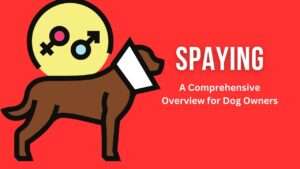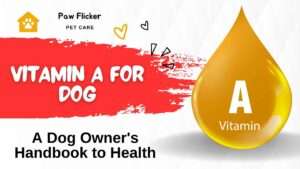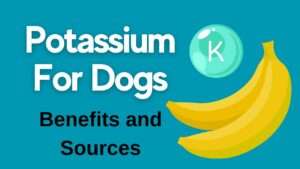Curious about whether your furry friend can indulge in the creamy delight of sunflower seed butter?
As pet owners, we’re often on the lookout for safe and nutritious treats for our beloved dogs.
Sunflower seed butter presents an intriguing option, but before you share a spoonful with your pup, let’s explore whether it’s a healthy choice for our canine companions.
Contents Overview
What is Sunflower Seed Butter?
Sunflower seed butter is a creamy spread made from roasted sunflower seeds. It’s a delicious alternative to traditional nut butter, offering a nut-free option for those with allergies or dietary restrictions.
Sunflower seed butter is rich in nutrients like protein, healthy fats, vitamin E, and magnesium, making it a nutritious choice for spreading on toast, adding to smoothies, or using as a dip for fruits and vegetables.
It boasts a slightly nutty flavor and a smooth texture, perfect for satisfying cravings while providing essential nutrients.
Nutritional Value of Sunflower Seed Butter
Sunflower seed butter is packed with nutritional goodness, offering a range of essential nutrients. It’s rich in protein, healthy fats, and fiber, which can help keep you feeling full and satisfied.
Additionally, sunflower seed butter is a good source of vitamin E, an antioxidant that supports healthy skin and immune function.
It also provides magnesium, which is important for muscle and nerve function, as well as bone health. With its balanced nutritional profile, sunflower seed butter is a tasty and nutritious addition to any diet.
Can Dogs Eat Sunflower Seed Butter safely?
Yes, dogs can safely eat sunflower seed butter in moderation.
It’s important to choose a variety that is unsalted and does not contain any added sugars or artificial sweeteners, as these can be harmful to dogs.
Sunflower seed butter can be a healthy treat for dogs due to its high protein and healthy fat content.
However, it’s crucial to remember that while sunflower seed butter is safe for dogs, it should only be given to them in small amounts as an occasional treat. Overconsumption can lead to weight gain and digestive issues.
Additionally, always consult with your veterinarian before introducing any new foods into your dog’s diet to ensure they are safe for your pet’s individual health needs.
Potential Benefits of Sunflower Seed Butter to Dogs
Let’s delve into the potential benefits of sunflower seed butter for our canine friends.
1- Digestive Health
Sunflower seed butter may promote digestive well-being in dogs:
- Fiber content: Provides dietary fiber, aiding in digestion and promoting regular bowel movements.
- Gentle on the stomach: Suitable for dogs with sensitivities to other nut butters, as it’s often easier to digest.
2- Potential Allergen Alternative
For dogs with allergies or sensitivities, sunflower seed butter can be a valuable alternative:
- Hypoallergenic: Less likely to trigger allergic reactions compared to common allergens like peanuts.
- Nut-free option: Ideal for dogs with nut allergies, offering a safe and delicious treat alternative.
3- Dental Health
The act of chewing sunflower seed butter treats can confer dental benefits for dogs:
- Tartar control: Chewing promotes saliva production, which can help reduce plaque buildup and maintain dental hygiene.
- Mental stimulation: Engaging in chewing activities can provide mental stimulation and alleviate boredom in dogs.
4- Weight Management
Incorporating sunflower seed butter into a balanced diet can aid in weight management for dogs:
- Moderation is key: Rich in healthy fats, so portion control is important to prevent excessive calorie intake.
- Satiety factor: The combination of protein and healthy fats can help dogs feel fuller for longer, potentially curbing overeating tendencies.
Potential Risks and Precautions of Feeding Sunflower Seed Butter to Dogs
Let’s explore the potential risks and precautions of feeding sunflower seed butter to dogs.
1- Risks Associated with Sunflower Seed Butter
Despite its nutritional value, sunflower seed butter poses certain risks to dogs:
- Xylitol Contamination: Some commercial brands may contain xylitol, a sugar substitute toxic to dogs. Even small amounts can lead to severe health complications, including liver failure and hypoglycemia.
- High Fat Content: Sunflower seed butter is rich in fats, which, when consumed excessively, can contribute to weight gain, pancreatitis, and digestive issues in dogs.
- Potential Allergens: While less common than peanut allergies, some dogs may exhibit allergic reactions to sunflower seeds, resulting in symptoms such as itching, gastrointestinal upset, and skin inflammation.
2- Precautions for Feeding Sunflower Seed Butter
To minimize the risks associated with feeding sunflower seed butter to dogs, consider the following precautions:
- Read Ingredient Labels: Always scrutinize the ingredient list to ensure the sunflower seed butter does not contain xylitol or other harmful additives.
- Moderation is Key: Offer sunflower seed butter to your dog in moderation, as excessive consumption can lead to health issues. Limit portions to avoid overindulgence and maintain a balanced diet.
- Monitor for Allergic Reactions: Introduce sunflower seed butter gradually and observe your dog for any signs of allergic reactions, such as itching, swelling, or gastrointestinal distress. Discontinue use if adverse symptoms occur.
- Choose Unsweetened Varieties: Opt for unsweetened sunflower seed butter to avoid potential xylitol contamination. Pure sunflower seed butter with no added sugars or sweeteners is the safest option for dogs.
- Consult with a Veterinarian: Before incorporating sunflower seed butter into your dog’s diet, consult with your veterinarian, especially if your dog has existing health conditions or dietary restrictions. They can offer personalized guidance based on your dog’s specific needs.
Safe Ways to Feed Sunflower Seed Butter to Dogs
When it comes to treating our furry companions, safety is paramount.
Sunflower seed butter can be a delicious and nutritious addition to your dog’s diet when offered safely and responsibly.
Let’s explore some safe ways to feed sunflower seed butter to dogs, ensuring they enjoy its benefits without any adverse effects.
Choose High-Quality, Natural Sunflower Seed Butter:
- Opt for sunflower seed butter made from high-quality, natural ingredients without any additives or preservatives.
- Select brands that specifically state they are safe for dogs and do not contain xylitol, a harmful sweetener.
Start Slowly and Monitor for Reactions:
- Introduce sunflower seed butter to your dog’s diet gradually, starting with small amounts.
- Monitor your dog for any signs of allergic reactions or digestive upset, such as itching, vomiting, or diarrhea.
- If no adverse reactions occur, gradually increase the serving size as tolerated.
Offer Sunflower Seed Butter as a Treat or Food Topper:
- Use sunflower seed butter as a special treat or as a tasty topping for your dog’s regular meals.
- Spread a thin layer on a chew toy or treat puzzle to provide mental stimulation and enrichment.
- Mix a small amount into your dog’s kibble or homemade dog treats for added flavor and nutrition.
Use Moderation and Portion Control:
- Sunflower seed butter is calorie-dense, so it’s essential to offer it in moderation to prevent weight gain.
- Limit the amount of sunflower seed butter based on your dog’s size, weight, and dietary needs.
- Use portion control tools like measuring spoons to ensure you’re offering the appropriate serving size.
Homemade Sunflower Seed Butter Treats:
- Make homemade sunflower seed butter treats using dog-friendly ingredients like oats, pumpkin, or banana.
- Combine sunflower seed butter with other nutritious ingredients to create tasty and wholesome snacks for your dog.
- Use silicone molds or cookie cutters to shape the treats into fun shapes and sizes.
Be Mindful of Other Dietary Considerations:
- Consider your dog’s overall diet and nutritional needs when incorporating sunflower seed butter.
- Adjust your dog’s daily calorie intake to account for the additional calories from sunflower seed butter treats.
- Ensure your dog has access to fresh water at all times, especially when offering high-fat treats like sunflower seed butter.
Safe and Suitable Alternatives of Sunflower Seed Butter for Dogs
Safe and suitable alternatives to sunflower seed butter for dogs include:
- Unsweetened almond butter, rich in healthy fats and protein.
- Cashew butter offers a creamy texture and nutty flavor.
- Coconut butter provides medium-chain fatty acids for energy.
- Pumpkin seed butter is packed with antioxidants and essential minerals
. - Hemp seed butter contains omega-3 fatty acids for skin and coat health.
Always ensure the chosen alternative is free from harmful additives like xylitol and introduce it gradually to monitor for any adverse reactions in your furry friend.
Bottom Line
In conclusion, while sunflower seed butter can be a tasty and nutritious treat for dogs in moderation.
It’s essential to choose a variety without added salt, sugar, or artificial sweeteners, and to consult with your veterinarian before introducing any new foods into your dog’s diet.
With proper care and moderation, you can safely share the joy of sunflower seed butter with your furry friend.




































+ There are no comments
Add yours